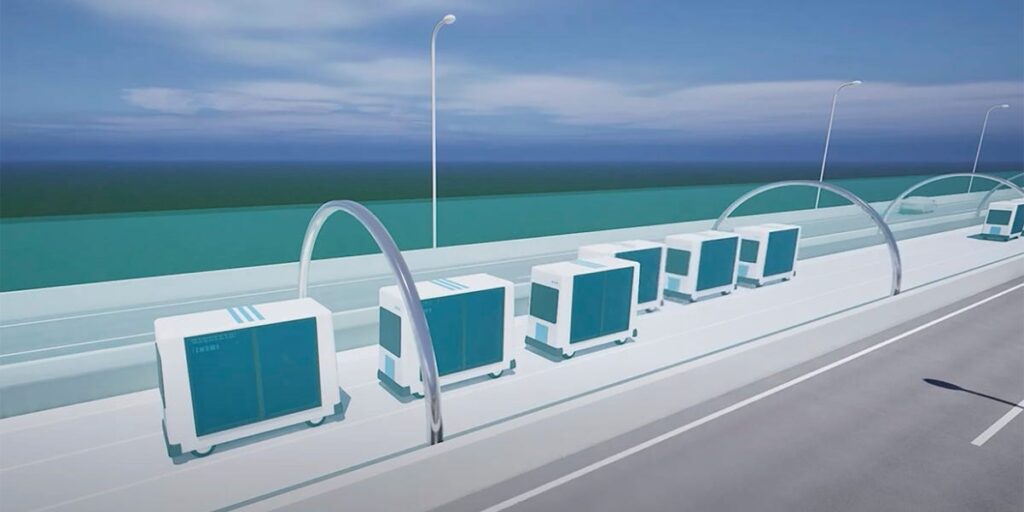- Japanese authorities want the conveyor-belt road to run between Tokyo and Osaka.
- As well as tackling a trucker shortage, the road could reduce carbon emissions.
- Test runs are expected to begin in 2027 and it could be up and running by the mid-2030s.
Japan is planning to build what it describes as a “conveyor-belt road” between the cities of Tokyo and Osaka to address a shortage of truck drivers.
The idea is that giant containers on pallets will be placed on a blocked-off, secure conveyor belt in the middle of the highway. Automated forklifts will be used to load and unload goods.
A video made by the Japanese government shows how it might work.
AP News reported that a trial for the project, also known as an “auto-flow road,” will begin in 2027 or 2028. The aim is to have full operations underway by the mid-2030s.
According to Japan News, the system could do the same amount of work as 25,000 truck drivers each day.
The publication said such a system linking Tokyo to Osaka, 320 miles (515km) away, would cost up to ¥3.7 trillion or nearly $24 billion.
Yuri Endo, a senior deputy director overseeing the project at the Ministry of Land, Infrastructure, Transport and Tourism, told AP that the project will allow for a “24-hour automated and unmanned transportation system.”
“We need to be innovative with the way we approach roads,” Endo said.
She added that, as well as helping combat a shortage of delivery drivers, the road could help reduce carbon emissions.
According to a recent Nomura Research Institute study cited by Kyodo News, Japan will have 36% fewer truck drivers than needed to meet the country’s logistical demands in 2030.
The number of truck drivers is expected to fall from 660,000 in the fiscal year of 2020 to 480,000 in fiscal 2030, the think tank said.
“It will be necessary to improve the efficiency of logistics in order to avoid serious economic effects,” Kazuyuki Kobayashi, the institute’s logistics consulting group manager, said earlier this year.
The shortage of truck drivers is partly due to an aging population. However, it is worsening due to laws introduced in April that limit the amount of overtime drivers can work.
According to government estimates, if the truck driver shortage remains unaddressed, it could leave a third of all cargo undelivered and leave a $76 billion dent in Japan’s economy by 2030.
It follows similar systems being considered by Switzerland, which would involve self-driving pods on an underground pathway, and London, which is weighing up an automated transport system using low-cost linear motors, AP reported.
Read the full article here
















